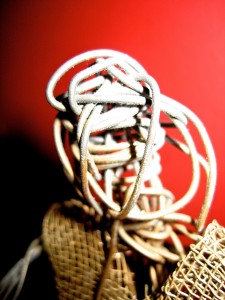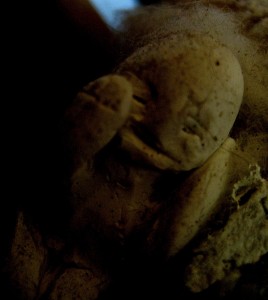
For the past several months I have enjoyed a major infatuation with a delicious variety of chocolate from The Grenada Chocolate Company. It’s simply the best chocolate I’ve ever eaten. It’s organic and it’s affordable! This past week, I discovered its true energetic origin and now know why it has resonated so deeply with me, for its creator was a man of integrity, energetically aligned with what’s right, with the same spirit of intent that I fully embrace in my own life and work.
Unfortunately, I am sad to say, Jan sent me the obituary for Mott Green the other day, founder of the Grenada Chocolate Company, who recently died a tragic death at the age of 47. This man lived and actualized the values of our world to come, a master stalker of needed change. I encourage all to open to his journey—it’s an inspiration.
Here is the New York Times obituary for Mr. Green:
Mott Green, a Free-Spirited Chocolatier, Dies at 47
By WILLIAM YARDLEY
Published: June 9, 2013
Mott Green, who emerged from a hermitlike existence in a bamboo hut in the jungle of Grenada to produce a coveted Caribbean delicacy — rich, dark chocolate bars that he exported around the world with the help of sailboats, bicycles and solar-powered refrigeration — died on June 1 in Grenada. He was 47.
He was electrocuted while working on solar-powered machinery for cooling chocolate during overseas transport, said his mother, Dr. Judith Friedman.
Mr. Green was born David Friedman, and grew up on Staten Island. He became Mott over the course of many years of visiting and eventually living in Grenada, where residents had a distinctive way of pronouncing his nickname, Moth. He later took Green as his surname to reflect his environmental interests.
Mr. Green tended to flit about as a child, but with focus: he built go-karts using lawn mower engines; he ran the New York City Marathon when he was 16; he dropped out of the University of Pennsylvania just months before graduation — accepting a degree, he felt, would be capitulating to a corrupt social structure — and he spent much of his 20s squatting with a community of anarchists in abandoned homes in west Philadelphia, where he “rescued” food that restaurants had planned to throw away and distributed it to homeless people.
He was eventually drawn permanently to Grenada. When Mr. Green was a boy, his father, Dr. Sandor Friedman, the director of medical services at Coney Island Hospital, taught there each winter, often bringing his family along.
Mr. Green founded the Grenada Chocolate Company in 1999. Its slogan was “tree to bar,” but that did not capture the breadth of the endeavor. Working with small cocoa farmers in Grenada and as many as 50 factory employees during peak operations, all of whom earned the same salary — and probably more than he did — Mr. Green dried cocoa beans in the sun; built, maintained and powered the machinery to make chocolate; packaged the finished product; and cobbled together an international network of distributors, including volunteer cargo cyclists in the Netherlands.
In 2011, the company received recognition the State Department for its “contribution to the sustainable growth of rural economies by establishing Grenadian products in international markets; pioneering agrotourism; outstanding environmental conservation efforts; and promotion of organic farming.”
In 2008, 2011 and 2013, the Academy of Chocolate in London awarded silver medals to Grenada’s dark chocolate bars. A documentary film about the company, “Nothing Like Chocolate,” directed by Kum-Kum Bhavnani, was released last year and has been shown at film festivals.
Human rights advocates have long criticized the treatment of small cocoa farmers, and, particularly in Africa, the exploitation of child workers by buyers and exporters who sell cocoa to big chocolate companies. Despite international protections put in place in 2001, a 2009 survey by Tulane University found that nearly a fourth of all children ages 5 and 17 in cocoa-growing regions of Ivory Coast had worked on a cocoa farm in the previous year.
Mr. Green set out to address such issues by dealing directly with small growers and by keeping the processing and packaging of chocolate within Grenada. In the process, he appears to have created the only chocolate-making company in a cocoa-producing country.
“My progression,” he told D magazine in Dallas for a 2012 blog post, “was activist, love Grenada, love cocoa, love machines and tinkering, making chocolate, and doing it all without hurting the land.”
David Lawrence Friedman was born on April 15, 1966, in Washington. His family moved to Staten Island shortly before he turned 2.
He was the valedictorian of his class at Curtis High School. He was accepted at the Massachusetts Institute of Technology, but chose Pennsylvania instead. He dropped out in the spring of 1988, his senior year.
“He was repulsed by the prison of privilege,” Tim Dunn, a friend, said in an interview. “He was looking for real life. And he found it.”
Mr. Green spent several years after college as a kind of master tinkerer, forager and activist among homeless anarchists in Philadelphia. He helped route electricity into abandoned houses for squatters, and he converted a Volkswagen bus to run on electricity. He helped develop a free lunch program that is still in place. He later moved to the East Village in Manhattan and made solar-powered hot-water showers for a group of squatters there.
By the mid-1990s he had moved to Grenada, where he initially lived in a remote hut he had built himself. It, too, relied on solar energy, in part to power Mr. Green’s passion for music.
“You’d hear Ella Fitzgerald coming out of this bamboo house in the rain forest,” his mother recalled.
Mr. Green developed a taste for cocoa tea, a local favorite, and that helped draw him out of the jungle and into the concerns of cocoa farmers and workers. Joining with a friend from Eugene, Ore., Doug Brown, he studied chocolate production in San Francisco. Working in Eugene, the men restored old machines from Europe and built new ones themselves. By the late ’90s they had shipped everything to Grenada. Mr. Brown died of cancer several years ago.
The company struggled for many years even as it won recognition. Mr. Green lived at the factory the whole time, sleeping in a workroom.
It moved into profitability just a few months ago, thanks in part to its recent opening of a shop in Grenada that sells treats made from its chocolate. Grenada’s chocolate bars are also sold online and at stores in various countries. In the United States, they are sold at Whole Foods stores in Manhattan and other retailers scattered across several states.
Last year the company delivered tens of thousands of chocolate bars to Europe on a sail-powered Dutch ship, the Brigantine Tres Hombres, operated by a company called Fairtransport. A team of volunteer cyclists in Amsterdam helped handle distribution on the ground.
Mr. Green called it “the first carbon-neutral trans-Atlantic mass chocolate delivery.”
In addition to his mother, a clinical psychologist in New York, Mr. Green is survived by a brother, Peter. Sandor Friedman died in 2004.
Dr. Friedman said she and several other people involved with the company were meeting this month in Grenada to develop a plan for keeping it operating.
“A lot of people now talk about paying for the actual cost of food or fair food and stuff like that,” said Alexis Buss, a friend from Mr. Green’s days as a squatter. “He wasn’t doing it to be trendy. He’s always been that way. He was just doing it because it made sense.”
So ends the obituary. As I pondered Mr. Green’s death, I found myself caught in a moment of crisis of meaning, a glitch, which granted me access to a deeper truth: We are all beings who are going to die. Our life’s work, no matter how good and valuable, is but a castle on the sea shore, soon to be washed away by the waves of infinity.
The Shamans of Ancient Mexico encourage us to indeed choose a path of heart, and to live it to the fullest, to live it impeccably, but not for a moment to be fooled by the self-importance of permanence. No structures can withstand the impermanence of change. Our structures or casings are vehicles to dip into life and gather experience and lessons, but in the end, the real trick is to learn to ride the ever-changing waves of infinity, and that requires learning how to let go when the gig is up and be ready to catch the next wave.
What we carry with us is the experience and love of all life lived, but beyond that we take nothing. And what we leave behind will blend forward into new life, perhaps an even better blend of chocolate, done right, impeccably, with care for all involved, energetically resonant with what’s right. Thanks for your gift Mott!
Sincerely,
Chuck Ketchel, LCSW
If interested in knowing more about Mott Green, here is a detailed article published in SideDish.






